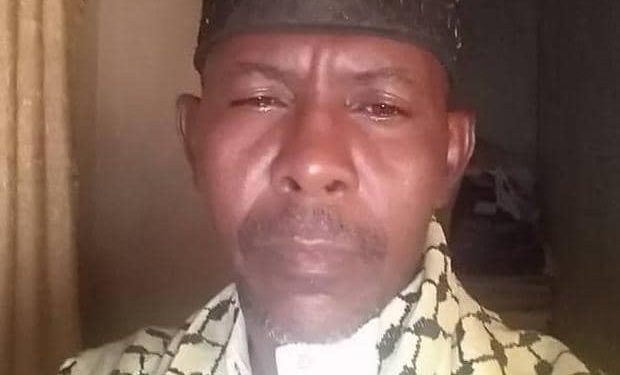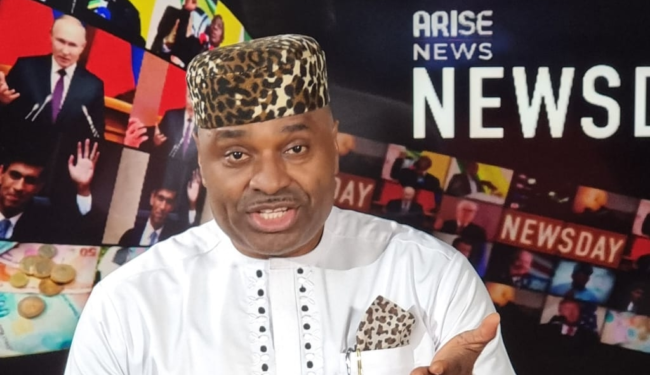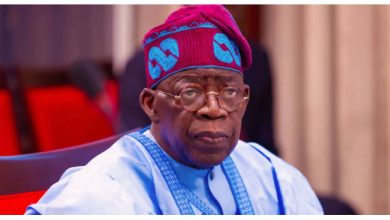SHARIAH ARBITRATION PANELS – A call for tolerance in the South West

By ISHOLA BALOGUN
The recent uproar surrounding the proposal for Shariah Arbitration Panels in the southwestern states of Nigeria highlights an unsettling trend of intolerance and misunderstanding about Islamic law among the populace, particularly among some non-Muslim communities. As we navigate the complexities of a diverse nation like Nigeria, it is vital to clarify the purpose and nature of these arbitration panels, what they entail, and why they are fundamentally a call for voluntary, culturally sensitive adjudication within the Muslim community.

The Nigerian Supreme Council for Islamic Affairs (NSCIA), under the leadership of His Eminence, Alh. Muhammad Sa’ad Abubakar, has expressed serious concern over the rising intolerance faced by Muslims in the southwest, especially following recent resistance against the establishment of an Independent Shariah Arbitration Panel in Ekiti State. This initiative is designed to provide a dedicated platform for resolving civil disputes such as marriage, divorce, inheritance, and contractual agreements in accordance with the Quranic principles that guide Muslim lives.
The Need for Islamic Adjudication
When a Muslim marries according to Islamic principles, it is expected that all aspects of the marriage—from its initiation to its termination—be treated within that framework. If issues arise within that marriage, where should a Muslim turn for resolution? Should they be compelled to seek adjudication in a customary court that may lack the nuanced understanding of Islamic marital principles or, worse yet, approach the High Court, which may not fully appreciate the religious and cultural context of their problems?
The answer is clear: Muslims seeking assistance with marital, divorce, or inheritance issues related to their faith need a forum that is sensitive to their unique circumstances—a court or an arbitration panel that understands Islamic law as it applies to those issues. The Shariah Arbitration Panels proposed in the southwest are precisely those forums. They are voluntary mechanisms aimed at fostering mutual accord and understanding among Muslims, allowing them to engage in dispute resolution grounded in their beliefs and values.
Imam Haroun Muhammad Eze, the NSCIA’s Deputy National Legal Adviser, articulated it succinctly: “The Independent Arbitration Panel is a voluntary platform designed to resolve civil and marital disputes among consenting Muslims.” This point cannot be overstated; the arbitration being advocated for is strictly about civil issues.
Misconceptions and Misinformation
Contrary to the misconceptions propagated by some critics, notably those aligning with the Yoruba Regional Alliance (YRA), the Shariah Arbitration Panels are not courts with jurisdiction over criminal matters, nor do they advocate for harsh penalties or fanaticism. The reality is that they are concerned solely with upholding the rights of individuals within Muslim marriages and communities.
It is deeply troubling that the introduction of these panels has been characterized as a threat to the cultural fabric of Yoruba land or seen as a harbinger of chaos. Opponents of Shariah law often reference a distorted understanding of Islam, suggesting that Islamic adjudication equates to violence or intolerance.
Indeed, the NSCIA’s statement following the opposition to the Shariah Arbitration Panels reminds us that Islamic law offers a framework for fairness and justice. The council affirms that these panels will not impose their rulings on non-Muslims but will simply serve those within the Muslim community who choose to access them. So why deny a significant number of citizens their right to seek justice and resolution through a mechanism that resonates with their beliefs?
A Call for Understanding and Tolerance
It is worth acknowledging that the backlash against Shariah Arbitration Panels often stems from a fear of losing cultural identity. Yoruba elders like Com. Opeoluwa Akinola have voiced concerns about the potential chaos and disruption that could arise from such an initiative. However, peaceful coexistence, religious tolerance, and respect for one another’s choices should be considered the cornerstones of our shared human experience.
Our rich tapestry of diverse cultures and beliefs has historically enlightened the fabric of Yoruba land. From Islam’s early introduction to the region to the cohabitation of various faiths, Yoruba culture has remained resilient. Rather than viewing the Shariah panels as a challenge to cultural heritage, this initiative should be seen as an evolution of our legal practices to accommodate a significant portion of the population.
Furthermore, it’s essential to recognize that we are not just advocating for Muslim rights in a vacuum. This situation speaks to broader themes of inclusivity. If the Yoruba cultural identity is robust, it should be resilient enough to accommodate other practices and beliefs. The assertion that Islamic adjudication is alien to Yoruba traditions overlooks a significant reality: Muslims are an integral part of the Yoruba cultural landscape.
As Imam Eze emphasized, “while others are allowed to live and practice their beliefs freely, we urge that Muslims be granted the same respect and liberty to live according to their faith.” This call for recognition is not merely a plea for survival; it is an appeal for mutual understanding and a harmonious coexistence that reflects the spirit of Nigeria’s diverse society.
Conclusion
The resistance against the Shariah Arbitration Panels is not merely about legal frameworks; it is a reflection of the societal struggle to embrace diversity. We must resist the urge to demonize what we do not understand and engage thoughtfully with our neighbors, regardless of their faith. The proposed panels serve as tools for community cohesion, offering Muslims in the southwest a way to navigate their lives consistent with their beliefs and rights as citizens.
As we advocate for respect for all religions, let us also embody that respect in our discourse and actions.
Encouraging tolerance, understanding, and coexistence among Nigeria’s diverse populations will only strengthen our democracy and foster a peaceful society. Ultimately, the success of any initiative rests on the goodwill and acknowledgment of the rights of all citizens. It is time to live and let live and to recognize that for many, access to Islamic arbitration is not merely preferable but essential for their religious and cultural identity.
Let us be the embodiment of our cultural heritage—a heritage that champions coexistence and fosters mutual respect among all ethnic and religious groups in Nigeria. By being tolerant with this Shariah Arbitration Panels in the region, we are not only protecting the rights of Muslims; we are also enriching our national identity, making a strong statement on our ‘unity in diversity’.
*Ishola Balogun, a journalist and columnist of Vanguard Newspaper, writes from Lagos









